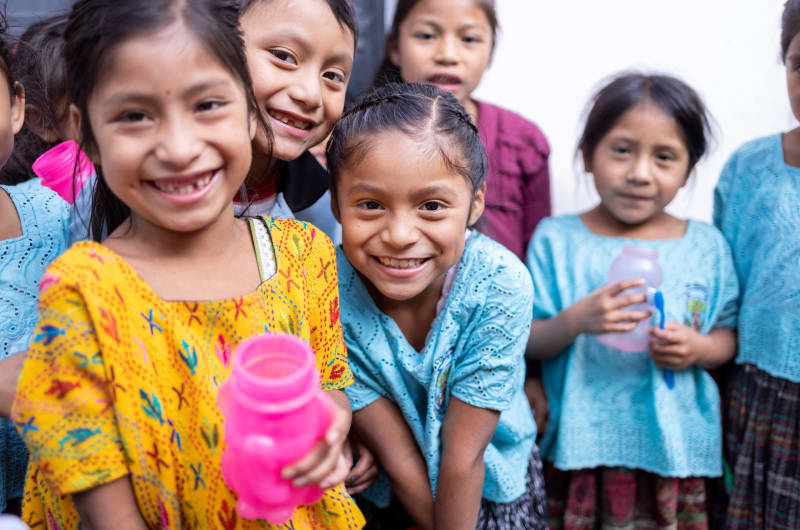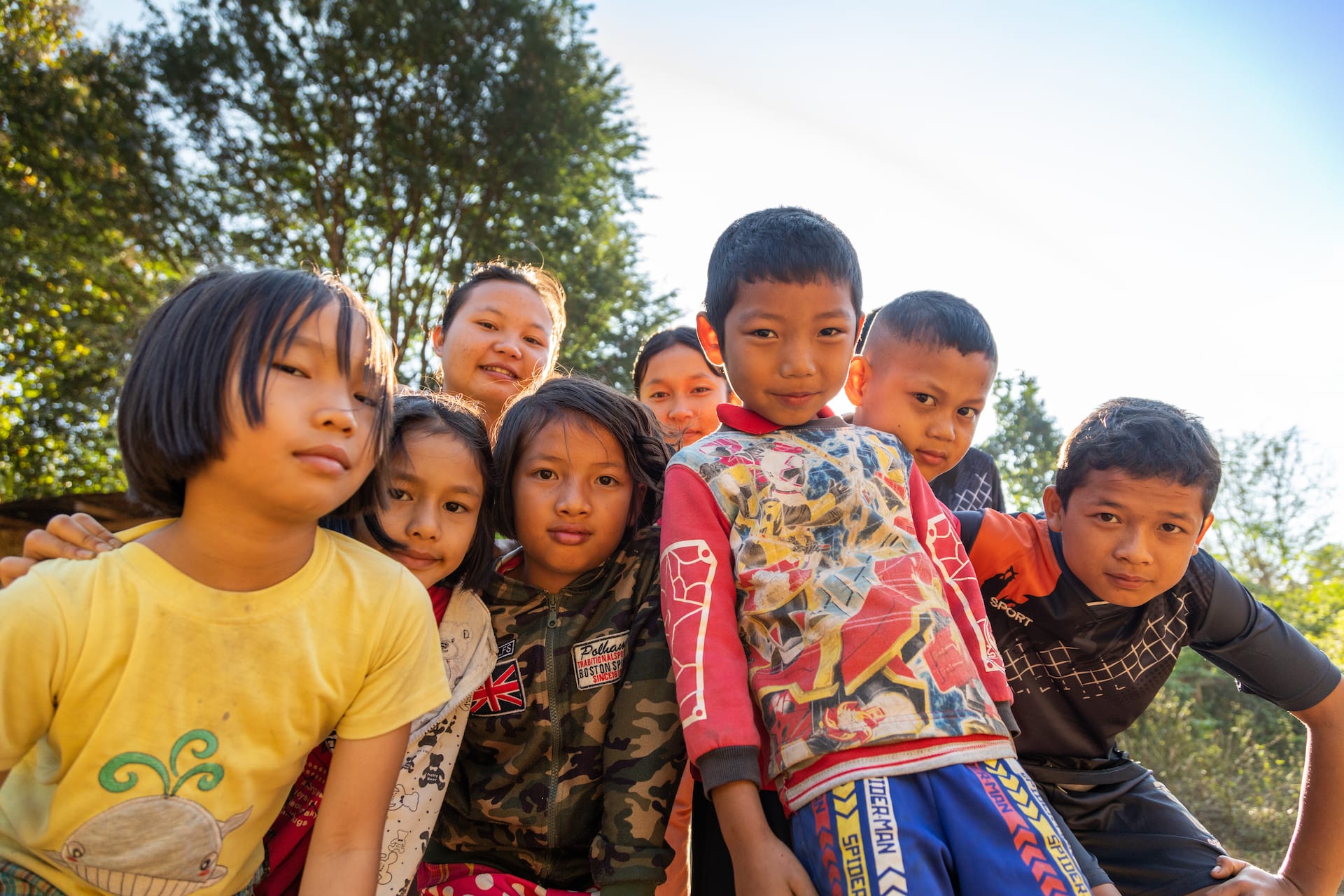
Most of us engaged in the work of child advocacy and poverty alleviation can point to a moment when poverty, child mortality, hunger and disease became up-front and centre for us, rather than something hypothetical or far away.
For me, I can point to a moment in a village on the border of Myanmar, in northern Thailand.
It was the turn of the millennium, over 20 years ago, and I was travelling with a group of about a dozen young people, teaching English to elementary school kids and engaging in missions work.
I was well aware that world leaders had recently signed and committed to the Millennium Development Goals (MDGs) to combat issues like poverty, hunger, child mortality, disease and illiteracy. I understood these issues were far-reaching, yet they were still so far away to me.
That all changed when I visited this village.

Children in northern Thailand, the same region where Allison first saw extreme poverty first-hand.
We heard about this community’s life of hardship and heartache. We learned about the exploitation of vulnerable ethnic minorities displaced by war and how migration left them vulnerable to trafficking and abuse. These families lacked access to healthcare and education, trapped in the extreme poverty of the village they called home.
For dinner, I was invited to join a family in their home. We sat on the floor in a circle, and they told us their story of the everyday lived realities of extreme poverty. Then, it went silent for a moment as parents and siblings looked down at their laps. While no words were spoken, the emotion was clear. Finally, our translator, through tears, relayed to us the turning point of their story: “We couldn’t save our child.”
This family lost a child, to preventable diseases. To poverty and injustice.
It was no longer far away. It was up-front and centre.
The state of the world’s children
What I didn’t know at the time was that the MDGs would stimulate unprecedented efforts to meet the needs of the world’s poorest. The United Nations has called the MDGs the “most successful anti-poverty movement in history.”
For over 20 years, the number of people living in extreme poverty—on less than $1.90 per person per day—steadily declined.
But that trend stopped in 2020 when poverty rose due to the social and economic impacts of COVID-19. Poverty rose globally in 2020 and 2021 by 150 million people.
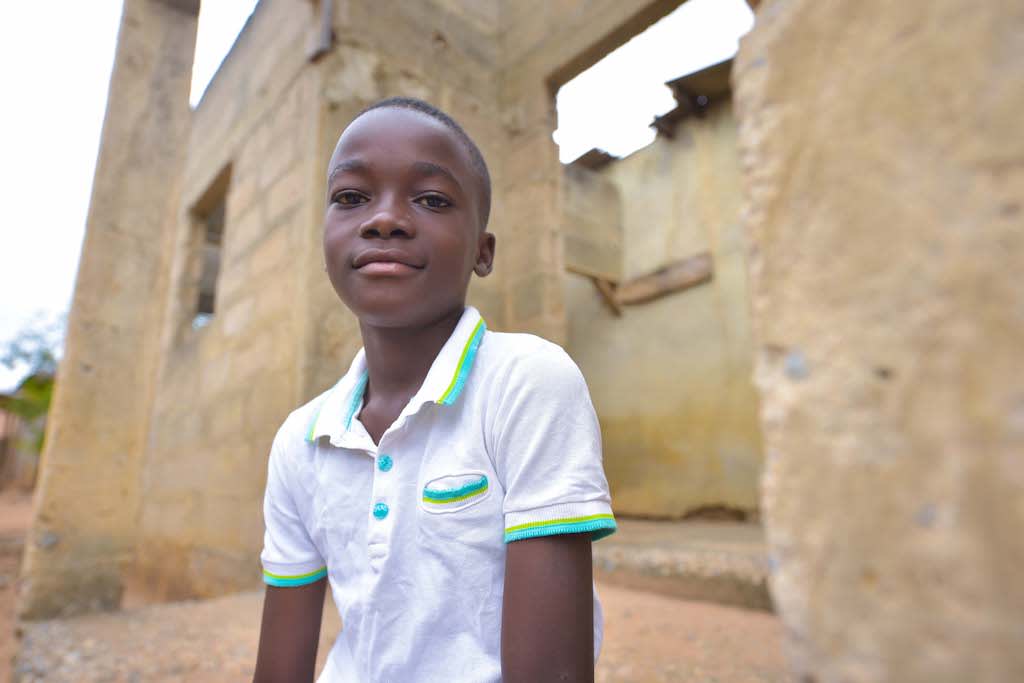
Raphael, 10, is a Compassion-sponsored child in Ghana, one of the countries hardest hit by the current global food crisis.
It’s estimated that around 800 million people now live in extreme poverty, with children accounting for about half of the world’s poor. The current global threats to child protection and well-being are staggering.
The world’s children are lacking education.
The world’s children are conflict exposed.
The world’s children are vulnerable to environmental degradation.
The world’s children are displaced.
The world’s children are being trafficked.
The world’s children are food insecure.
We know that in times of crisis, children suffer first and suffer most. Their vulnerability is layered and multi-faceted as the risk of disease, malnutrition and violence increase and compound. They are exposed to stress and trauma. The impacts on long-term development outcomes are significant and severe.
Keeping the world’s children up-front and centre
We can’t allow these realities to remain far away. But rather, as global citizens and child advocates, we need to keep the stories and the people up-front and centre. Peninah, the mother of eight in Kenya cooking stones for her starving and crying children, needs to be kept up-front and centre. Parwana, the daughter in Afghanistan being sold by her father as a child bride so her siblings would not starve, needs to be kept up-front and centre.
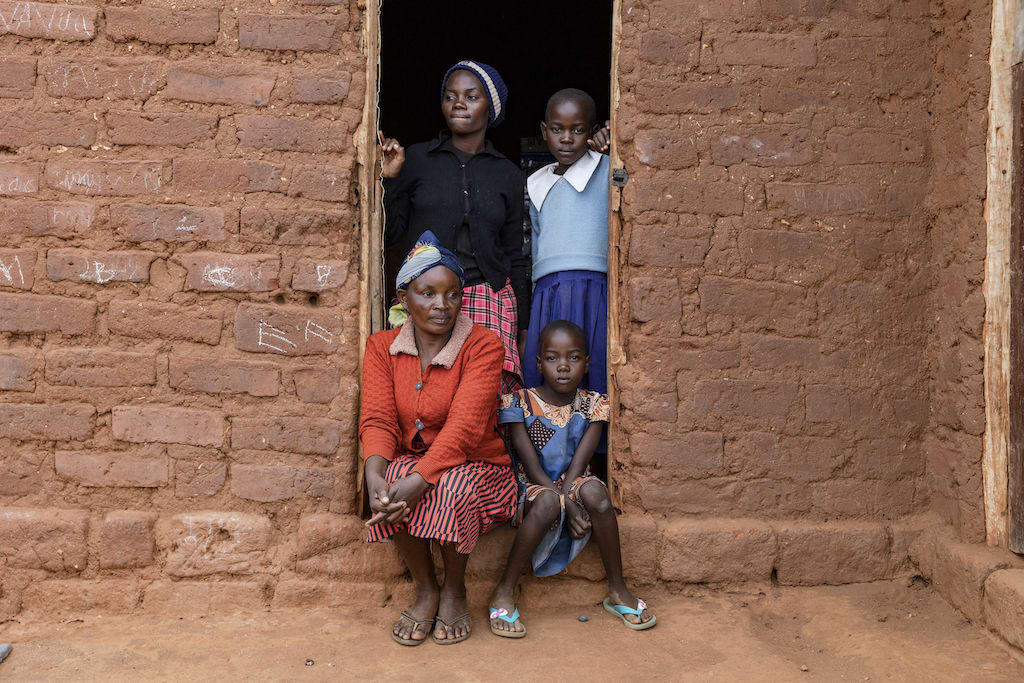
Eight-year-old Stella (front right), a Compassion-sponsored child in Kenya, and her family are one of many who have become more food insecure due to prolonged drought in the Horn of Africa.
With a global food crisis upon us, the rolling back of progress in the fight against poverty isn’t over. Oxfam writes, “Without immediate radical action, we could be witnessing the most profound collapse of humanity into extreme poverty and suffering in memory.”
The world’s children need the world to wake up, to pay attention, and to act more than ever before.
They need governments to strengthen their policies to protect the most vulnerable.
They need right and just institutions that further the common good.
They need businesses to care about corporate social responsibility and creating shared value.
They need media to tell their stories and shine a light on what’s happening around the world.
They need artists to write, draw, sing and create to inform and inspire others.
They need the academy to educate and bring forth the best ideas and leaders.
They need the church to be the hands and feet of Jesus in their local communities while stretching their arms around the globe to help others do the same.
They need the social sector to advocate and intervene.
They need cross-sector partnerships so we can achieve greater things together than we could ever achieve alone. They need us here at Compassion, and other peer organizations, to do everything we can to reach more children and youth, more quickly, while maximizing outcomes.
The world’s children need you.
What will it take?
The need is sobering, but so is the experienced reality of these last few years. This last season has been really difficult on so many levels. It’s been exhausting, draining and painful, experienced uniquely by each one of us.
We’ve experienced what some experts are calling “collective trauma”—an event that affects an entire society. Many of us went into protectionist mode to care for ourselves and those closest to us—and rightfully so; thank goodness you did!
We’ve experienced “languishing”—feeling numb to our own realities and the realities of others, while time seemed to stand still as we were left with dulled motivation and quiet despair.
Organizations everywhere, including us here at Compassion Canada, navigated the tension of needing to care for our people and our purpose. There was more need, and as a result, more work to do than ever before. And yet there were more challenges and pressures on our people than ever before, too.
As a result, many of us struggled to stay motivated and energized, and it was far easier to just “go through the motions”. We engaged in life and work, but it became a bit more robotic or mechanical. Myself included—I write this out of my own experience and the experience of so many people I know.
That’s why it’s so important to keep reminding myself why I’m here, and to keep that why in front of me. Not just why we do this work at Compassion, but why God called me here and why He called each of us—staff, supporters, partners and beyond.
Last week, we gathered as a Compassion Canada staff for a first-of-its-kind event to do just that: to re-connect with our foundation in Christ, with one another, and with our shared purpose together.
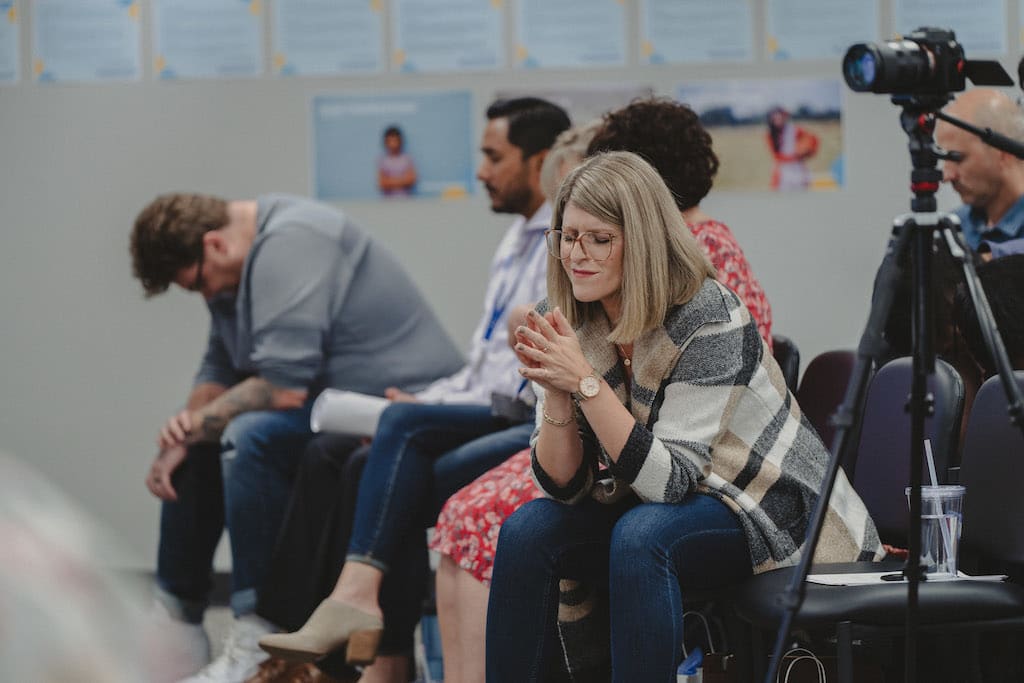
Praying together as the Compassion Canada staff at a first-of-its-kind All-Staff Event, September 2022.
We brought the needs of the world’s children up-front and centre, reminded ourselves of our organizational and personal ‘why’, and then asked the question: what’s it going to take?
Beyond donations and organizational strategy, brand and culture, capacity and capabilities (all of which are vitally important, of course), we looked to what is even more fundamental—a few postures that have become incredibly important in my own life and leadership that I’d like to also humbly share with you.
5 postures we need to effectively respond to the needs of the world’s children
1. Soft hearts
“Above all else, guard your heart, for everything you do flows from it.” – Proverbs 4:23
Frankly, there has been a lot of pain and disappointment over the last two years. We’ve been hurt, let down, disillusioned and so much more. If we’re not careful, it can make us bitter, cynical, resentful, jaded or numb. We can start to engage in work we once found deep purpose in, but not let it permeate our hearts.
But making a sustained and substantial impact in the world is dependent on our hearts staying soft—for God, others and the work and ministry to which we are called.
A soft heart is open, empathetic and willing to be moulded and shaped through the highs and lows of life. It means allowing yourself to feel deeply and opening yourself up to pain and heartache, without becoming hard-hearted.
Oswald Chambers says it beautifully: “Spiritual maturity is going from being thin-skinned and hard-hearted to thick-skinned and soft-hearted.”
2. Shrewd heads
“Look, I’m sending you out like sheep among wolves. Therefore be as shrewd as serpents and as innocent as doves.” – Matthew 10:16
Jesus holds up both the Good Samaritan (who we all know and love) and the Shrewd Manager (Luke 16) as an example worth emulating.
Why? Because we need to be people not only with big hearts, but big minds!
A soft heart and good intentions are a good start. And, we also need to be wise, discerning, resourceful and astute. We need to have growth mindsets and bring our very best thinking to the needs and opportunities around us locally and globally.
We need to continually learn, unlearn and relearn. As Alvin Toffler says, “The illiterate of the 21st century will not be those who cannot read and write, but those who cannot learn, unlearn and relearn.”
3. Surrendered hands
“Father, if you are willing, take this cup from me; yet not my will, but yours be done.” – Luke 22:42
We need an open-handed and humble posture of surrender. To begin each day and say not mine, Lord (be it my will, wants, preferences or privileges), but Your will be done.
As obvious as it sounds, it’s worth saying: we need humility in recognizing that God is God and we are not! He is all-knowing, and we are not. He is all-powerful, and we are not. We are called to join God in His work, and to do so in His way.
The prayer of indifference has become a common one for me: Praying for nothing more, nothing less, nothing else than the will of God for our lives, the lives of those we serve and the lives of the groups, organizations and institutions we are part of.
4. Soulful habits
“I am the vine; you are the branches. If you remain in me and I in you, you will bear much fruit; apart from me you can do nothing.” – John 15:5
This is about prioritizing the relationships and rhythms that create and sustain the life God has called us to live for his glory!
Jesus himself modelled for us the very kind of habits and rhythms of life we need in any age.
He had rhythms of retreating from the world and re-entering into it, withdrawing to the wilderness or a desolate place and then re-engaging. He regularly escaped the noise and frenzy to be alone with his Father, and to be with his disciples. And Jesus did this in the context of urgent and significant needs around him and a limited amount of time to accomplish God’s purposes through his life.
We need to care for our soul, and lead from the depth of our beingness in Jesus, not the shallowness of our doingness for Jesus.
Dallas Willard powerfully captures the importance of soulful habits: “Our soul is like an inner stream of water which gives strength, direction and harmony to every other element of our life.”
5. Selfless hunger
“Is not this the kind of fasting I have chosen: to loose the chains of injustice and untie the cords of the yoke, to set the oppressed free and break every yoke?” – Isaiah 58:6
As we think about the significant needs of the world’s children, I round out this list with selfless hunger—an altruistic, generous and loving sense of urgency, drive and motivation.
Here’s the thing: you can have a soft heart, shrewd head, surrendered hands and soulful habits and still lack the kind of others-oriented urgency that is so desperately needed in this season.
We need to work and act with urgency. That doesn’t mean burning yourself or others out, or causing harm by acting carelessly or recklessly, because that wouldn’t be selfless and would compromise the other postures noted above.
What it does mean is taking what God has entrusted to you—time, resources, passion, data, skillset, voice, opportunity—and stepping boldly and effectively into where He has called you.
Why are you here?
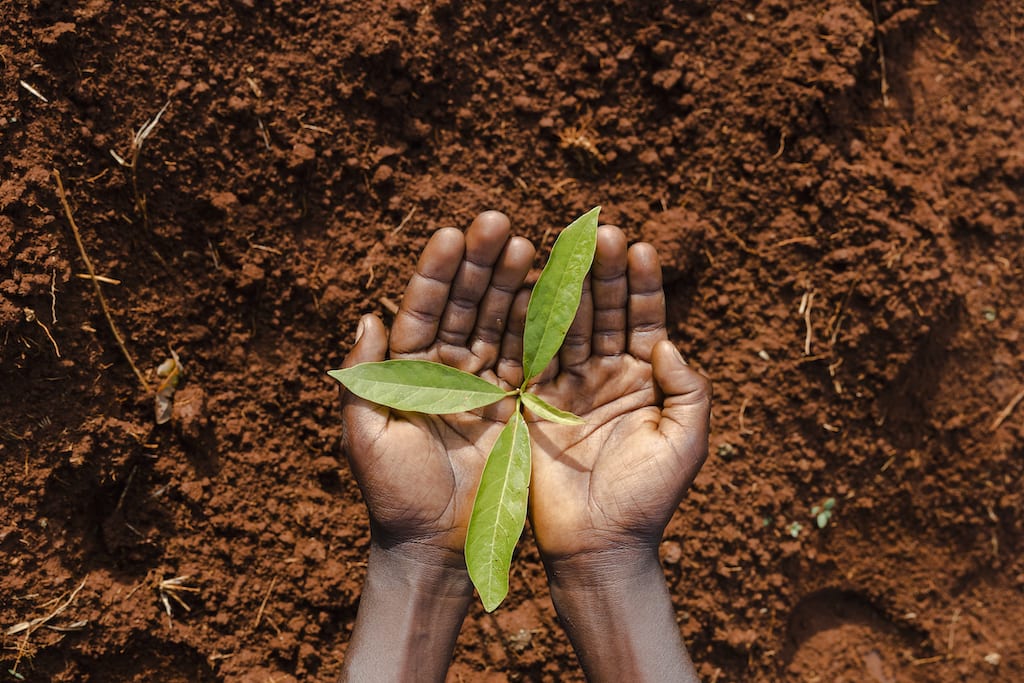
What brought you not only to this article, but to the end of it? What brought you to Compassion’s ministry, whether years ago, just this year or maybe just now?
What did God place on your heart when He called you here? What righteous convictions did He entrust you with? What holy discontent keeps you up at night?
What is in your hands to offer? What has God been developing in you that He has ordained for you to use on behalf of the world’s children?
The time is now to remind ourselves of our “why”, to bring the needs of children up-front and centre, and to faithfully and effectively respond.
To have tender hearts and big minds. To humbly pursue God’s will, not our own agendas. To be holistically well, prioritizing healthy rhythms and relationships.
And to earnestly give ourselves to a worthy cause, advocating for the poor and marginalized, loosening the chains of injustice, setting the oppressed free and sharing our food of with the hungry.
There is much to do, and I am thankful for every person who chooses to join us.
Allison Alley was the former President & CEO of Compassion Canada.


